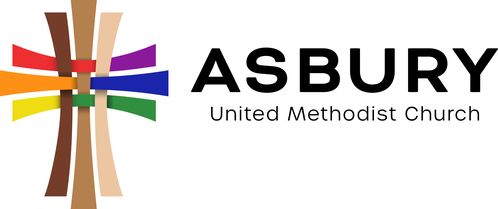Asbury's Welcome Statement
Approved by Asbury's Church Council in November 2016
ALL people are children of God and are of sacred worth. Asbury United Methodist Church affirms Christ’s example of unconditional love and publicly affirms a commitment to spiritual diversity and individual integrity. Therefore, we welcome all, including those who have not always been accepted because of race, religion, gender, gender identity, sexual orientation, national origin, cultural background, social or economic status, family make-up, physical abilities, or age. Our community embraces you and celebrates God’s love with you. We receive you with open arms, joy and the grace of our Lord, Jesus Christ.
Asbury is a Reconciling Church

In May of 2016, Asbury United Methodist Church formally voted to become a Reconciling Church, and to join the Reconciling Ministries Network.
At Asbury, ALL are welcome!
At Asbury, ALL are welcome!
What is a Reconciling Church?
A Reconciling Congregation celebrates human diversity and recognizes that all people are the beloved children of God and are of sacred worth. It welcomes the contribution each person makes to the Body of Christ.
A Reconciling Congregation is one that publicly welcomes all people into full participation of church life, including those who have known the pain of exclusion and discrimination, specifically and intentionally welcoming gay, lesbian, bisexual, transgender, or queer/questioning (LGBTQ) people.
A Reconciling Congregation is one that publicly welcomes all people into full participation of church life, including those who have known the pain of exclusion and discrimination, specifically and intentionally welcoming gay, lesbian, bisexual, transgender, or queer/questioning (LGBTQ) people.
What is Reconciling Ministries Network?
The Reconciling Ministries Network is a national grassroots organization working to change the United Methodist Church’s exclusionary policies against LGBTQ people as written in the United Methodist Church’s Book of Discipline. It also works with people and congregations to understand and prevent the pain caused within the church by such policies.
